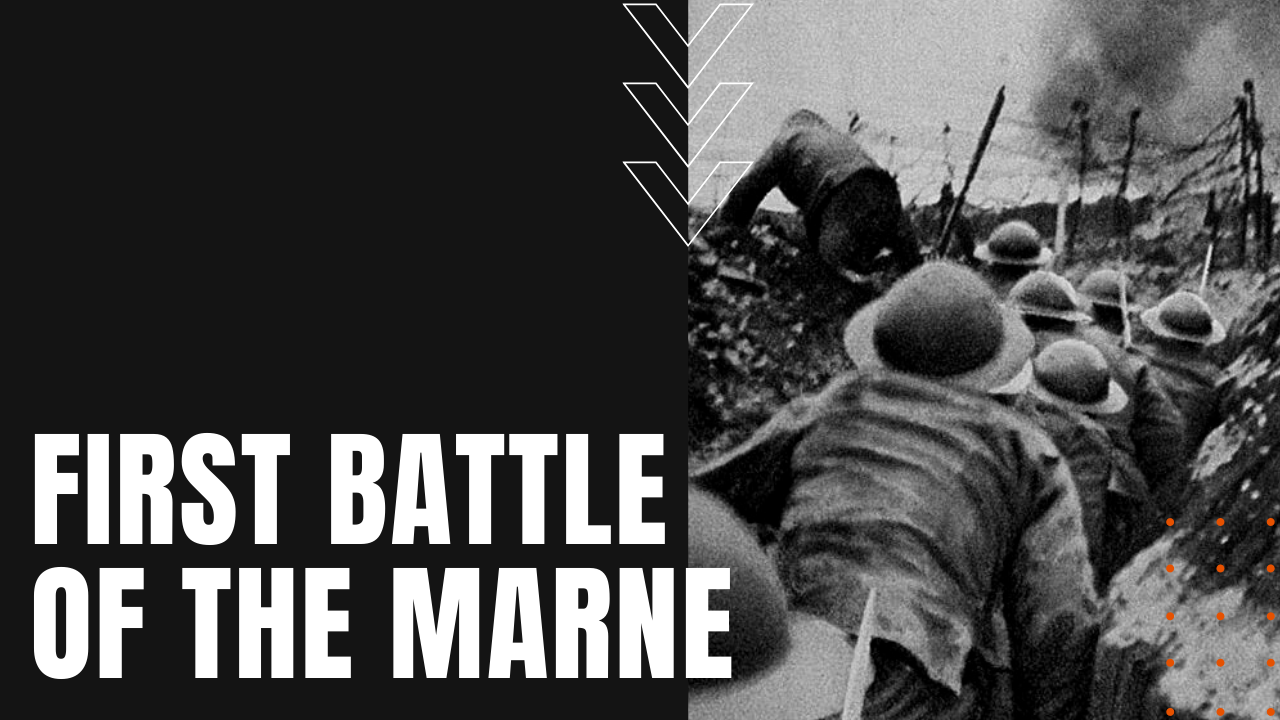First Battle of the Marne

In a war that most Europeans thought would be short and decisive for the Allies, the First Battle of the Marne changed all that, less than a month after the start of World War One. Following the German advance across Belgium and northeastern France, by the end of August, German forces were 30 miles from Paris, after securing victories at Lorraine, Ardennes, Charleroi and Mons—known collectively as the Battle of the Frontiers.
Protect Paris At All Cost
Predicting that Paris would fall to the Germans by September 5th, French General Joseph-Simon Gallieni convinced French commander-in-chief Joseph Joffre to reposition Manoury’s 6th Army to move in the defense of the French capital.
Known as the First Battle of the Marne, when German General Alexander von Kluck disobeyed orders to break off his pursuit of the retreating French 5th Army and instead lend support to General Karl von Bulow’s exhausted 2nd Army at the Marne River, on September 4th, 1914, after the chief of the German general staff Helmuth von Moltke was briefed on Kluck’s disobedience, he was also apprised that his armies at the Marne had overrun their supply lines in their rapid advance on Paris.
Fearing a French attack on the 1st Army’s exposed flank, he ordered a halt to the 1st and 2nd Armies’ advance on Paris. His orders would come too late, since Gallieni was already on the move, supported by allied troops from the British Expeditionary Force led by Sir John French.
Two days later, some 150,000 soldiers of Manoury’s 6th Army attacked the German 1st Army’s right flank, opening up a 30-mile gap in the German front line, which allowed the French 5th Army and the British Expeditionary Force to simultaneously pour through the gap in a frontal assault on the German’s 2nd Army. Bloody fighting would continue for the next several days, including a September 7th troop reinforcement of 6,000 French soldiers, who arrived at the front lines in a convoy of Parisienne taxi cabs in support of Manoury’s now exhausted men. As for the equally weary German armies, on September 9th, Moltke ordered a full retreat towards the Aisne River, joining the 1st and 2nd Armies in a trench warfare standoff that would last well into 1918.
Who Won the First Battle of Marne?
The Allies successful check of the German’s advance on Paris made for one of the most decisive victories in the history of human warfare, marking an end to the German’s two-front Schlieffen Plan, at the same time setting the stage for a trench war standoff that would take the lives of 20 million soldiers and civilians.
